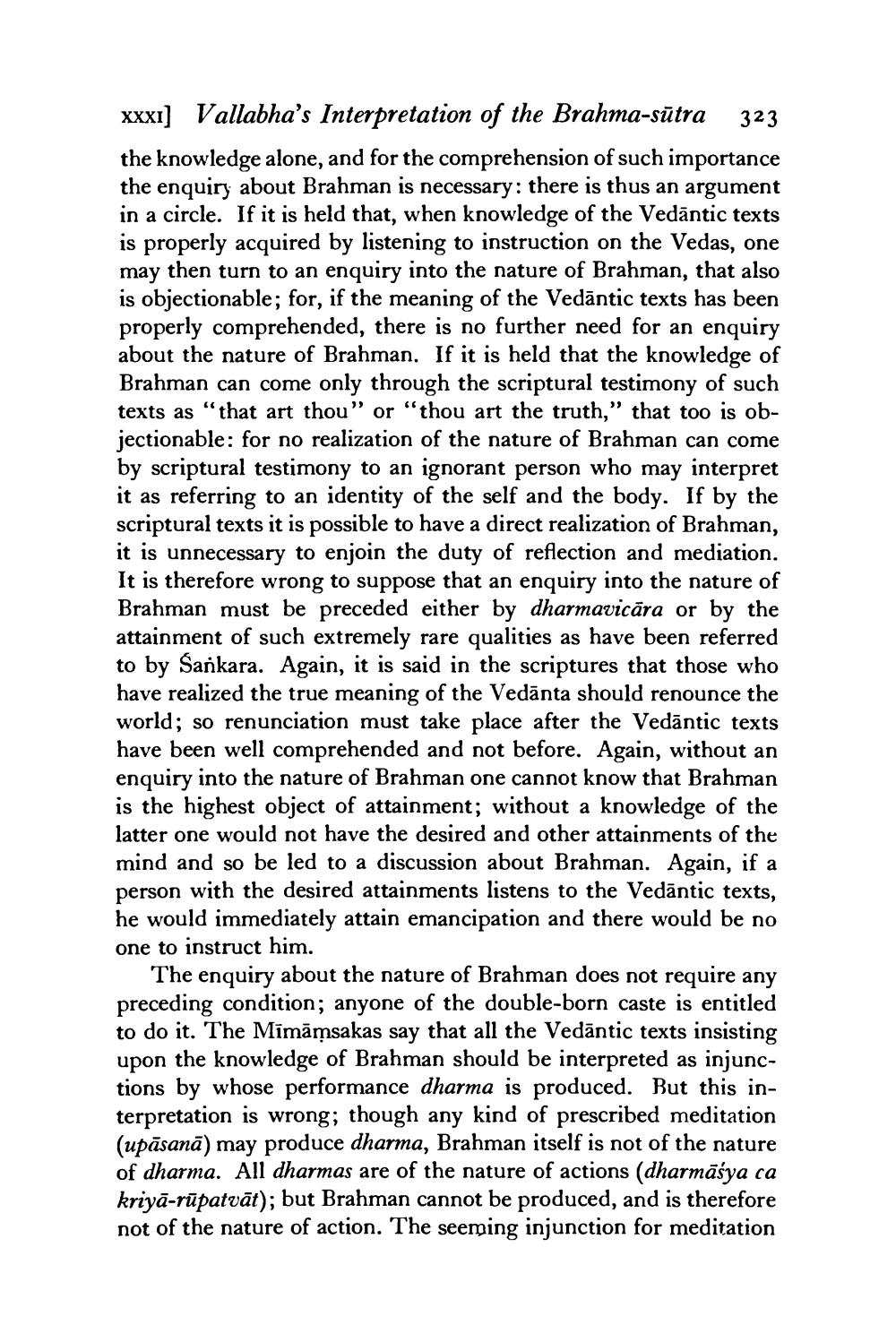________________
XXXI] Vallabha's Interpretation of the Brahma-sūtra 323 the knowledge alone, and for the comprehension of such importance the enquiry about Brahman is necessary: there is thus an argument in a circle. If it is held that, when knowledge of the Vedāntic texts is properly acquired by listening to instruction on the Vedas, one may then turn to an enquiry into the nature of Brahman, that also is objectionable; for, if the meaning of the Vedāntic texts has been properly comprehended, there is no further need for an enquiry about the nature of Brahman. If it is held that the knowledge of Brahman can come only through the scriptural testimony of such texts as "that art thou” or “thou art the truth,” that too is objectionable: for no realization of the nature of Brahman can come by scriptural testimony to an ignorant person who may interpret it as referring to an identity of the self and the body. If by the scriptural texts it is possible to have a direct realization of Brahman, it is unnecessary to enjoin the duty of reflection and mediation. It is therefore wrong to suppose that an enquiry into the nature of Brahman must be preceded either by dharmavicāra or by the attainment of such extremely rare qualities as have been referred to by Sankara. Again, it is said in the scriptures that those who have realized the true meaning of the Vedānta should renounce the world; so renunciation must take place after the Vedāntic texts have been well comprehended and not before. Again, without an enquiry into the nature of Brahman one cannot know that Brahman is the highest object of attainment; without a knowledge of the latter one would not have the desired and other attainments of the mind and so be led to a discussion about Brahman. Again, if a person with the desired attainments listens to the Vedāntic texts, he would immediately attain emancipation and there would be no one to instruct him.
The enquiry about the nature of Brahman does not require any preceding condition; anyone of the double-born caste is entitled to do it. The Mimāmsakas say that all the Vedāntic texts insisting upon the knowledge of Brahman should be interpreted as injunctions by whose performance dharma is produced. But this interpretation is wrong; though any kind of prescribed meditation (upāsanā) may produce dharma, Brahman itself is not of the nature of dharma. All dharmas are of the nature of actions (dharmāsya ca kriyā-rūpatvāt); but Brahman cannot be produced, and is therefore not of the nature of action. The seeming injunction for meditation




